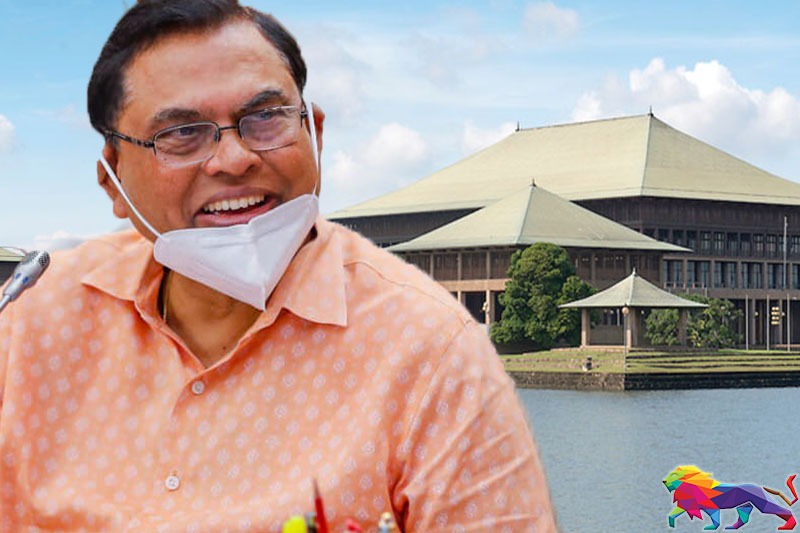Whether or not President Ranil Wickremesinghe took SLPP General Secretary Sagara Kariyawasam seriously when the latter publicly pronounced that his party cannot support the recently enacted 21st Amendment to the Constitution (introduced through the 22A Bill) because of provisions there that dual citizen cannot run for elected office, we do not know. But Kariyawasam, clearly went on record making that pronouncement, or more accurately threat. He also said that the SLPP would be discussing the matter with the president at a scheduled meeting. If that meeting was held, and if so what transpired there, is not in the public domain.
What we do know is that 22A (later dubbed 21A) was comfortably passed with the required two thirds majority with Admiral (Retd.) Sarath Weerasekera of the SLPP casting the only dissenting vote. Explaining his party’s stance, Kariyawasam said it was clear that the clause banning dual citizen from running for political office targeted former Finance Minister Basil Rajapaksa. This, he said, was totally unacceptable because laws are not meant to target individuals.
In the event many SLPP members, including three Rajapaksas, Namal, Chamal and Sasheendra, voted for the Bill. Party leader Mahinda Rajapaksa was among the many absentees at voting time. Basil Rajapaksa, the national organizer of the SLPP, widely credited to be the brains behind party and its eminence grise has been praised for the SLPP’s success at the 2018 local elections. This was the take-off point for Gotabaya Rajapaksa’s 2019 election as president with the frequently flaunted 6.9 million vote mandate. That paved the way for Mahinda Rajapaksa’s return to office as Prime Minister in 2020.
All that is now old hat. What is important right now is that Basil, more so than his siblings Gotabaya and Mahinda, is perceived as the genius behind the SLPP victory. Some party men have even sycophantically dubbed him as a “man with seven brains.” Brother Gotabaya renounced his U.S. citizenship to run for president in 2019. But Basil was not willing to do likewise and did not run for parliament in 2020 for the reason he was barred by provisions of 19A. While sections of the SLPP-led coalition that swept that election did not favour the removal of the constitutional prohibition of dual citizen from running, President Gotabaya was able to secure the enactment of 20A removing that barrier. He did so with the promise that the new constitution he promised would not include that provision. It was widely anticipated that this was done solely for Basil’s benefit. In eight months he was back in parliament on the SLPP National List assuming the finance ministry brother Mahinda long held both as president and prime minister.
Basil Rajapaksa was permitted by the courts to return to his U.S. homeland where his family lives, for medical attention on the promise he would return. He is now considered the SLPP puppeteer, pulling the strings from far away and setting his party’s agenda. If Basil engineered that some SLPP Member of Parliament, including ministers, were absent at voting time on 21A a few days ago, he did not secure blanket backing for his wishes. Even the Rajapaksas have broken ranks with only Mahinda, with no explanation offered up to now of his reasons for keeping away, remaining on Basil’s side with three other family members voting for the amendment. Does this signal cracks in the party and family? Only time can tell.
SJB, SLFP and dissident SLPP support was necessary for the amendment to get through with the required two thirds majority. The president understood that very well and he would have socked that into the SLPP that elected him president. Given that he only has the assured support of the solitary UNPer who succeeded him in his party’s single national list slot in parliament, Wickremesinghe remains a prisoner of the SLPP in the legislature until February next year when the constitution empowers him to dissolve parliament. Whether he has held out any assurances that he would not do that, and those MPs who would not qualify for a parliamentary pension if they do not have five years parliamentary service would be apprehensive of an early dissolution, he has levers to pressure sections of the SLPP if required.
Justifying his stand, Sagara Kariyawasam pointed out that a Briton of Indian origin has become the prime minister of the UK and urged that the world was now becoming or has become a global village. Implicit in that remark is “why can’t dual citizen Basil retain his U.S. and Sri Lanka citizenships and enjoy the rights of both?” Rishi Sunak was born in Britain, schooled there and graduated from Oxford. His parents immigrated to the UK from East Africa. But comparing Sunak’s case to Basil’s is like comparing chalk and cheese. Basil was born here and sought greener pastures in the U.S., possibly for economic reasons, and acquired citizenship there. He came back after this side of the fence became even greener with MR’s election. Unlike GR, he is unwilling to renounce that citizenship in return for elected office. He has not discussed the reasons for this stance. Reportedly he has a home in the U.S. but not in Malwana according to a court determination. Kariyawasam obviously wants to help Basil to butter his bread on both sides.


